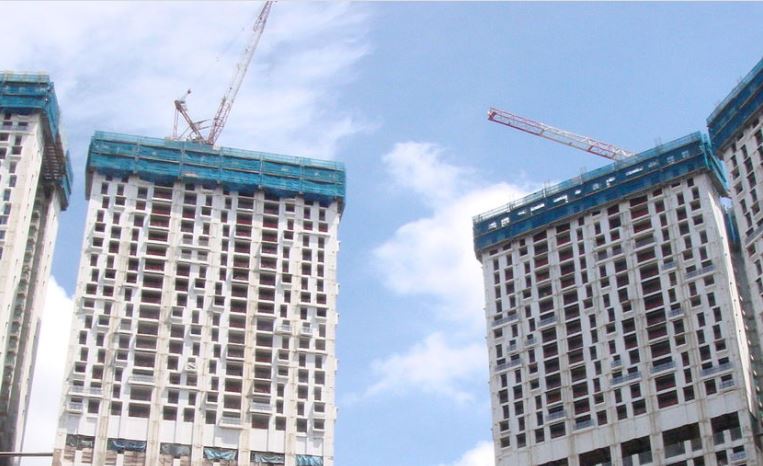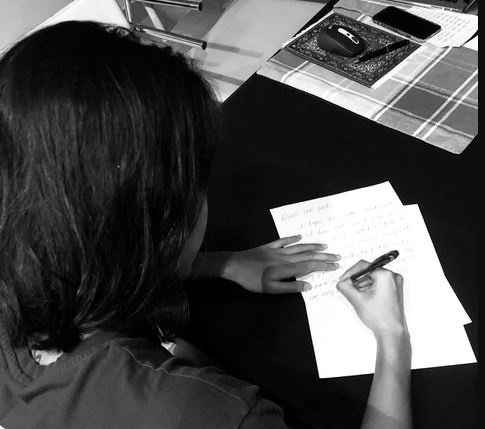By Shree Baphna, AsAmNews Contributor
I have a pen pal whom I have been talking to for the past two months or so. Of course, our version of being pen pals is a little bit more contemporary- instead of writing letters, we use social media to message each other. Even though my pen pal and I live in Singapore at the moment, the circumstances under which we are here are completely divergent. Nevertheless, I hoped that I would get to know my pen pal and be, in some form, a friend to talk to. I would like to refrain from using his name out of respect for his privacy. For this article, I will refer to him as my ‘Pen Pal’.
My Pen Pal is a well-educated young man who had left his family in Bangladesh to find better paying work in Singapore after his family business failed. He had hardly been in Singapore for 3 months when the COVID-19 pandemic escalated. He, along with his coworkers, have been isolated in their dorm and cannot leave their room. He is still under isolation as of today.
My Pen Pal is one of the roughly 293,000 migrant workers in Singapore who largely work in the labor-intensive construction industry. The migrant worker community in Singapore is largely comprised of young men from India and Bangladesh who left their homes in search of better paying jobs. Usually, they send the majority of their salary to families back home and the remainder is to sustain themselves.

Unfortunately, the bulk of Singapore’s COVID-19 cases have come from migrant workers, who live in crowded dorms. As a result, the government has placed thousands of workers in isolation. Those in dorms are prohibited from even stepping outside of their rooms. Many are facing the danger of being laid off, while most are not being paid. In the end, they are left at the mercy of their employer to provide basic necessities such as shelter and food. Majority of migrant workers are brown-skinned and tend to suffer unfair stereotypes and assumptions based on the color of their skin. Now that the virus has struck mostly the country’s migrant workers, they have been perceived as the “carriers” of the virus, an identity that has also become associated with their skin color and position in society. Just as the United States has deemed the virus as a “Chinese virus” (from the mouth of our President, no less), Singapore too has been caught up in a cruel racialization of this global pandemic.
That being said, it is not as if there aren’t sympathizers in Singapore. Numerous civil society organizations (CSO’s) are taking up the task to make sure migrant workers in dorms are protected, are being given basic necessities, and are trying their best to ensure their happiness and mental well-being. Is it 100% effective? Perhaps not, but it’s an effort. In an attempt to participate and expand myself outside of my quarantine bubble, I volunteered to become pen pals with a member of the migrant worker community.
Conversations between myself and my Pen Pal are quite generic. We shared a little about our families and where we are from. I asked him about his school life in Bangladesh, and he asked me to send pictures of places in the United States. He told me one of his friends had managed to get a job there and it was his ultimate goal to one day get there himself. During one such conversation, I let him know that I was a citizen of the United States and that my family is currently living Singapore on account of my father’s job. His immediate response to that was to ask me if I could help him immigrate to the United States.

Cartoon via Flickr Creative Commons by Floyd Brown
At first, that felt like an absurd question to me. I was just trying to be his friend and get to know him- why did he need to see me as an opportunity? My next thought was to be ashamed for thinking the latter. I have no idea what his experience has been. Any opportunity is an opportunity and he has every right to ask. It is not my place or my right to belittle someone else’s wants. The following thought I had was of how I helpless I was. I am someone with various forms of privilege that should be used to empower others. Not to say that I am a savior, but being privileged means I have the responsibility of being aware of those who many not share in that same advantage. However, when it came to my privilege of being an American citizen and of having grandparents who immigrated to the United States for a better life for future generations, I was helpless in aiding others to achieve the same.
Immigration is difficult, even for those who do have the financial resources and human capital. Just being an American citizen is not enough to help others get an ‘in’ because immigration is an issue caged by bureaucratic barriers. The intangible gatekeepers and powers that keep citizenship from others is so remarkably strong. Foolishly enough, I didn’t realize how out of reach it was until my Pen Pal asked for help. Who was I to help? What kind of ‘connections’ can even help a complex process like immigration?
There are many avenues to achieve some sort of legal status in any country. One option is to get a job that would provide a form of legal allowance to stay and work. However, the trend has been such that immigration is an opportunity offered to largely white-collar jobs or those in a professional field requiring a form of expertise. My Pen Pal did not check either box. In a span of 5 minutes I had already concluded that it was impossible to help him. I was angry with myself for coming to such a quick conclusion, but angrier that I felt I had no choice but to do so.
It struck me how much an occupation controlled one’s ability to move around and access certain legal statuses. In Singapore, my Pen Pal is part of a labor-intensive industry that requires extensive knowledge and the ability to think on your feet. He left his home in a different nation in search of better work. He is considered to be a “Migrant Worker”. He likely had to take out a loan to apply for the immigration process to Singapore. Now consider the same situation, but imagine if it had been someone who was white-skinned and had a job that involved sitting behind a computer or talking on a phone all day. He or she is considered to be an “Ex-pat” and is given more immigration privileges. Their immigration costs are likely to be borne by the company they work for.
Is this fair? In both hypothetical situations, the individuals are immigrants and both individuals do hard work. Both left their homes and came to another country for the same reasons. Yet, one is given a title that confines him to a certain social and legal status that is looked down upon. The other is given a title that creates assumptions of wealth, education and worldliness. At the end of the day, the motivation is the same but the access to opportunities are entirely different.
This short conversation I had was just a small nudge towards the revelation of the deliberate, pre-meditated barriers put in place by those who assume the role of gatekeepers. These are problems that are harder to fight than more tangible ones. In cases such as this, socioeconomic status, bias, and the hierarchy of value placed on human capital have become the true blockades to leveling the playing field. Many have said, time and again, this new-age pandemic has cast a stark light on the yawning gap between the haves and the have-nots. As for my Pen Pal, he now bears the brunt of being the main bread-winner for his family (even as his job is at risk), and the invisible weight of being ostracized as a “virus carrier” in Singapore. His ability to just pick and leave in search of a better life elsewhere is bogged down by both tangible financial barriers and intangible societal barriers. Sadly, this double disadvantage is one felt by many around the world and can only be alleviated if we change our systems of value-appraisal.
AsAmNews has Asian America in its heart. We’re an all-volunteer effort of dedicated staff and interns. Check out our new Instagram account. Go to our Twitter feed and Facebook page for more content. Please consider interning, joining our staff, or submitting a story.


